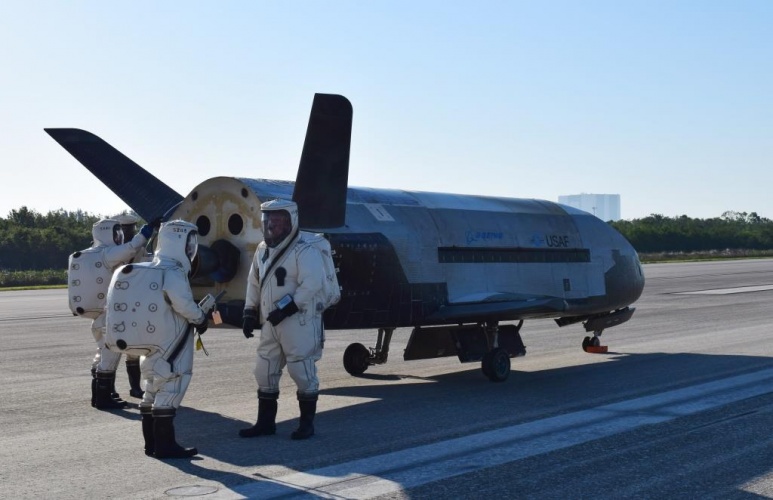
(Credit: US Air Force)
The secretive programme has now completed four extended space flights, with each mission lasting longer than the previous one. Having launched on an Atlas V rocket on 20 May 2015, OTV-4 now holds the space plane orbital duration record after spending almost two years in space.
"The landing of OTV-4 marks another success for the X-37B programme and the nation," said Lt. Col. Ron Fehlen, X-37B programme manager.
"This mission once again set an on-orbit endurance record and marks the vehicle's first landing in the state of Florida. We are incredibly pleased with the performance of the space vehicle and are excited about the data gathered to support the scientific and space communities. We are extremely proud of the dedication and hard work by the entire team."
Built by Boeing’s Phantom Works, the X-37B resembles a miniature space shuttle. The craft also operates in a similar way, launching vertically and landing on a runway. Initially operated by NASA, the X-37 programme dates all the way back to 1999. However, it was transferred to the Defence Advanced Research Projects Agency (DARPA) in 2004, at which point it became a classified programme. It is currently managed by the Air Force Rapid Capabilities Office.
The exact nature of the payload and purpose of each OTV mission is unknown, with the US military confirming only the general programme goals of ‘risk reduction, experimentation, and concept of operations development for reusable space vehicle technologies’.
"The hard work of the X-37B OTV team and the 45th Space Wing successfully demonstrated the flexibility and resolve necessary to continue the nation's advancement in space," said Randy Walden, the director of the Air Force Rapid Capabilities Office.
"The ability to land, refurbish, and launch from the same location further enhances the OTV's ability to rapidly integrate and qualify new space technologies."
According to the US Air Force, a fifth OTV mission is due to launch from Cape Canaveral later in 2017.





Glasgow trial explores AR cues for autonomous road safety
They've ploughed into a few vulnerable road users in the past. Making that less likely will make it spectacularly easy to stop the traffic for...